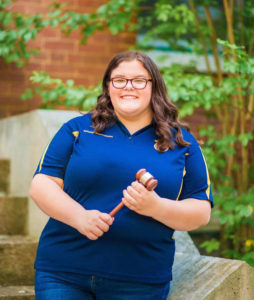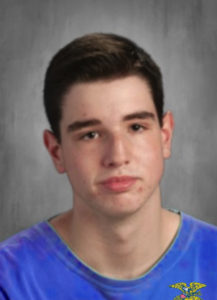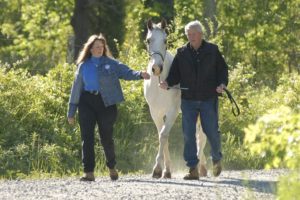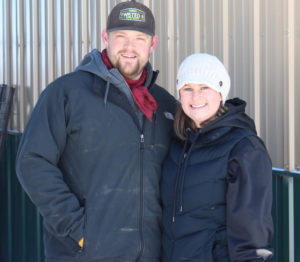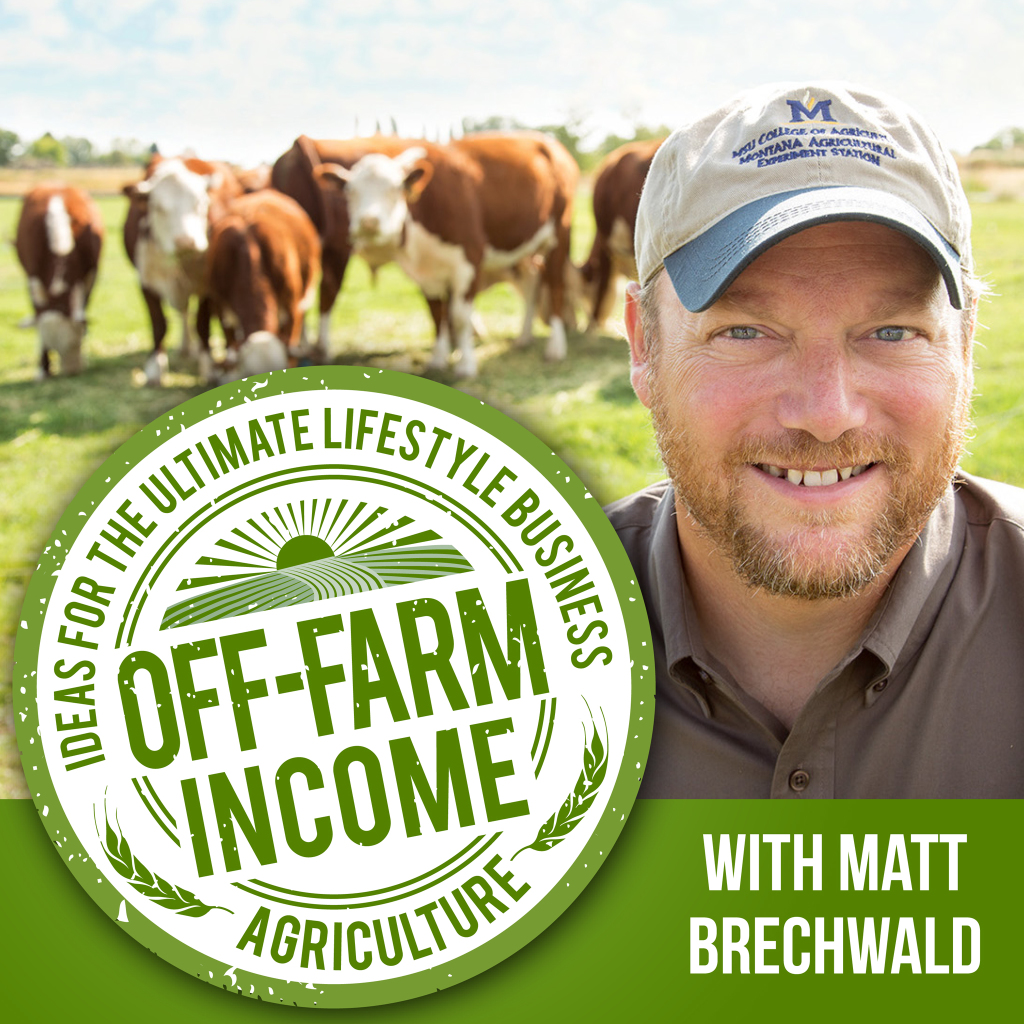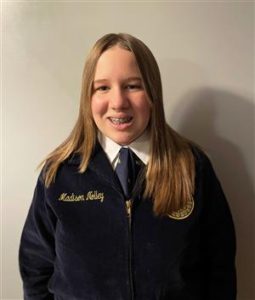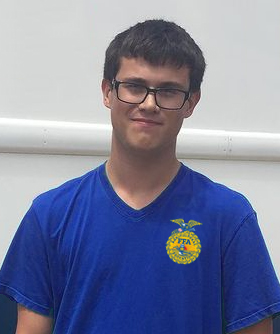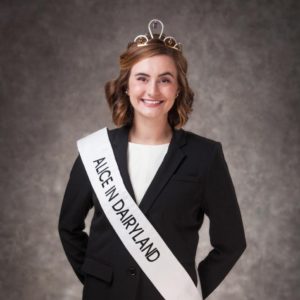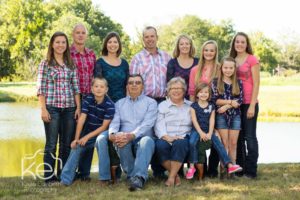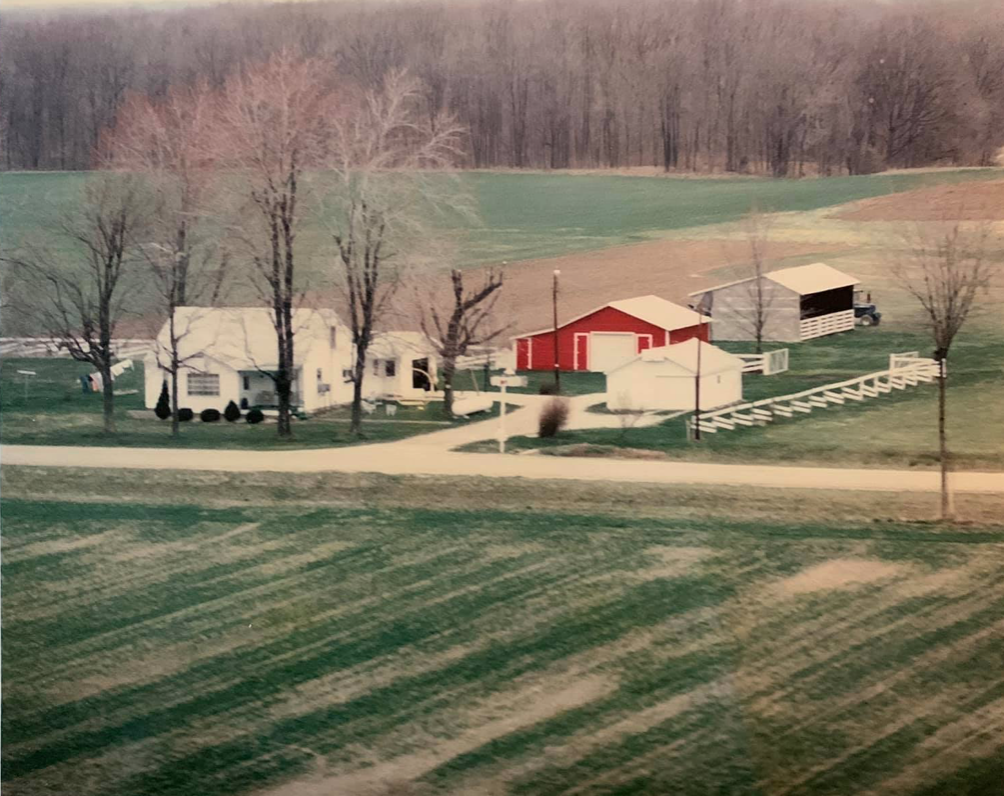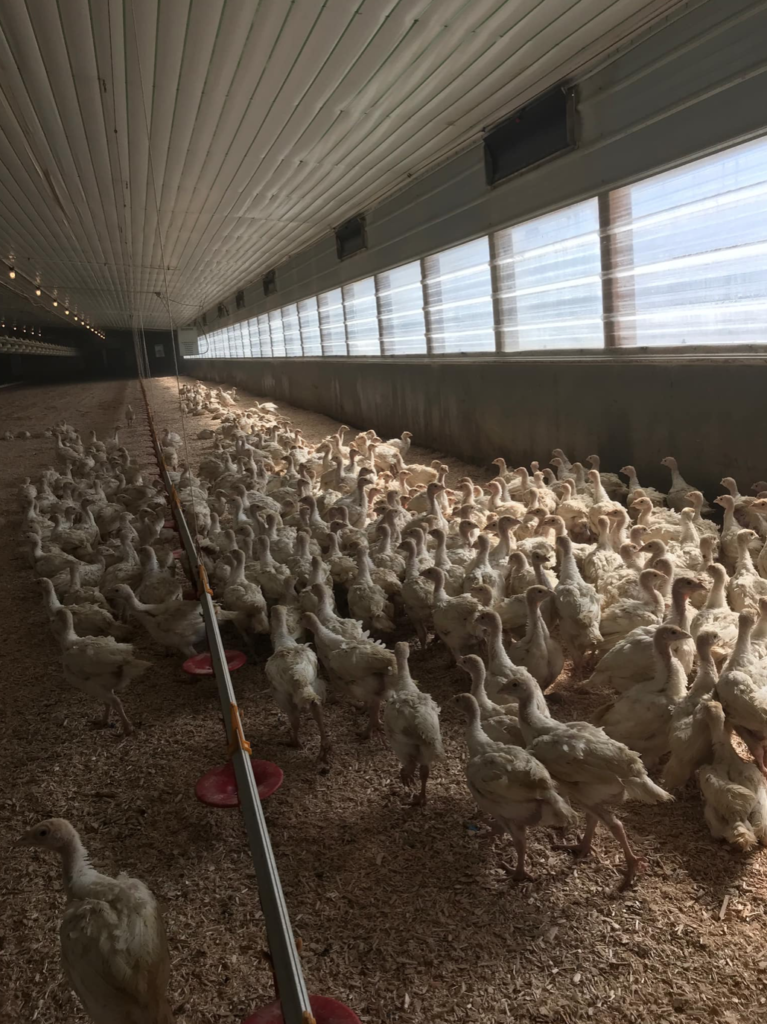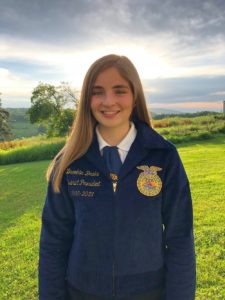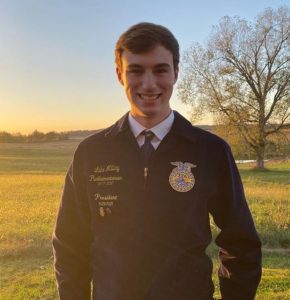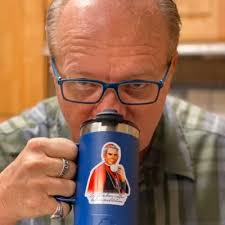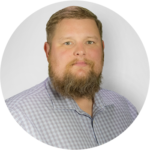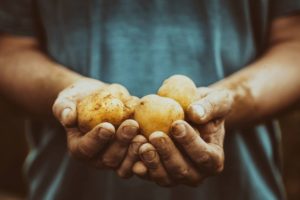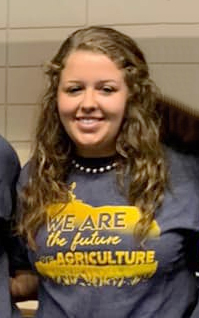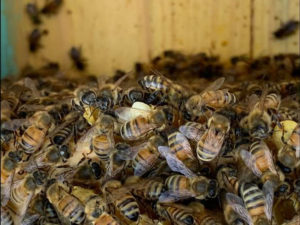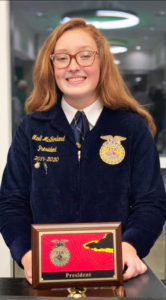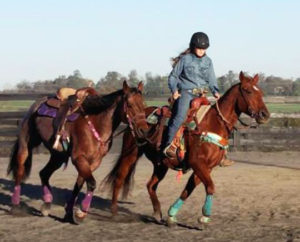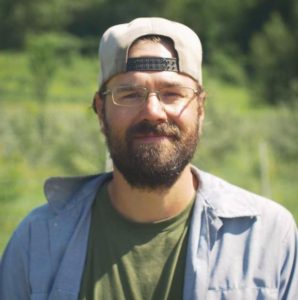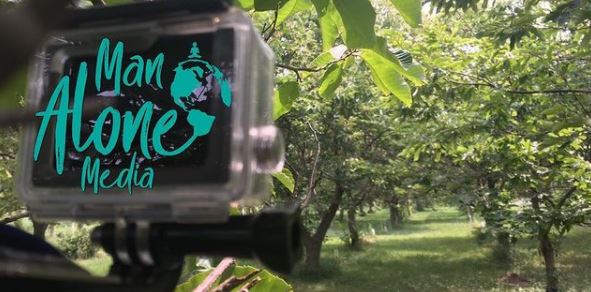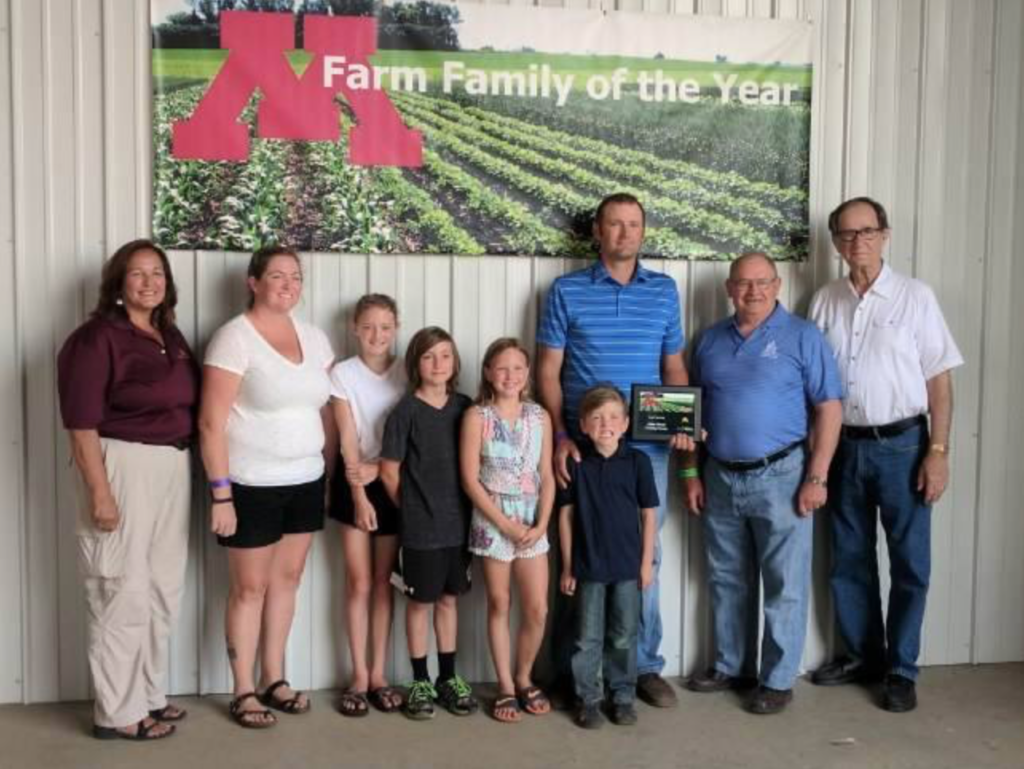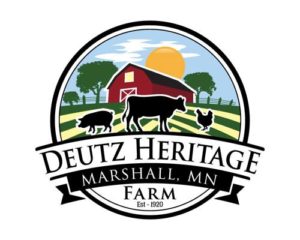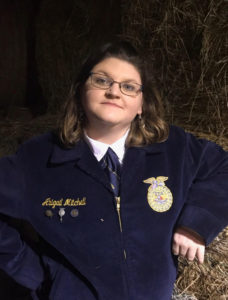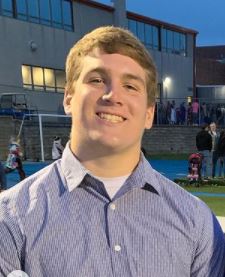Wed, 31 March 2021
INTRODUCING MISSY HAMILTON: For years now the percentage of Americans working in agriculture has been shrinking. As farms become more efficient and jobs in rural communities go away, more and more youth, move into urban areas for work. But, could we be seeing a change in this trend? In today's interview, we feature a guest who tells her story of coming into agriculture through the FFA. This is a story that I am hearing more and more often. Missy Hamilton grew up in a subdivision of Bardstown, Kentucky with no exposure to agriculture. Her older brother found his way into the FFA when he was in high school and encouraged her to try out the group as well. Missy gave it a try, and it has turned out to be an unbelievable success, with her now serving as her chapter's president. In four short years, Missy has gone from no knowledge about agriculture to leading her chapter and pursuing a career teaching ag as an FFA advisor. The FFA has given her the exposure and motivation, and agriculture is benefitting from this as we pull a student from an urban area into ag. In this way, the FFA is acting as an incubator for future agricultural professionals, and this is a very good thing. Missy is currently running her own candle and wax melt business called Missy's Makings. In addition to learning about agriculture, she has learned about entrepreneurship. She was also granted a $500 SAE grant from the Kentucky FFA in pursuit of her business. Now she is well on her way to a career that will enable FFA students in multiple different ways that will allow them to live and work in agriculture and rural areas if that is their wish! To purchase Missy's Candles and Wax Melts Visit: Facebook: https://www.facebook.com/Missys-Makings Instagram: https://www.instagram.com/missys.makings/
|
Tue, 30 March 2021
Direct download: OFI_1032__People_Who_Dont_Take_Risks_Shouldnt_Judge_Those_Who_Do.mp3
Category:general -- posted at: 12:30am MDT |
Mon, 29 March 2021
INTRODUCING SHAWN JAMISON: What is a "traditional FFA student"? I ask that question because I think the definition of a "traditional" FFA student is changing. In decades past of course it was a student who grew up on a farm and was furthering the farm education and future career in farming through this program. More recently it has been a student with exposure to farming who is very involved in aspects of what it takes to farm - soils, welding, mechanics, livestock production, etc. In the not too distant future, I expect this definition to shift again. Through my work conducting interviews with FFA students, and in my own exposure to our local FFA chapter through my daughter being a member and sitting on the advisory committee I see more and more students who are growing up without farming exposure that is joining the FFA. There are a number of reasons for this. The more students that I interview, the more I believe it is due to the developing knowledge that the FFA is an excellent pathway into a well-paying and very interesting career. Our guest today, Shawn Jamison, epitomizes this. Shawn is just beginning his FFA journey. He is close to wrapping up his freshman year of high school and his first year in the FFA. Shawn did not grow up on a farm, and his parents are not involved in agriculture. However, Shawn had the insight to see something about himself very early on - he enjoys being outside. And it was this enjoyment of being outside that led him into the FFA. Even as a freshman Shawn realizes that there are career fields that he can work in that won't have him inside of a climate-controlled environment all day. Shawn wants to feel the wind on his face, breathe fresh air and touch the soil. The FFA is his pathway because he realizes that agriculture is a great industry to allow him to live this life. What Shawn may not realize yet but soon will, is that when he finishes high school and four years of FFA he will have the skills that enable him to work outdoors but so much more. Between public speaking, record keeping, marketing, entrepreneurship, and everything else that the FFA offers he has already taken a significant step to set himself up for a fantastic life.
Direct download: OFI_1031__A_Pathway_To_Working_In_The_Outdoors___FFA_SAE_Edition___Shawn_Jamison___Tunstall_High_School_FFA.mp3
Category:FFA -- posted at: 12:30am MDT |
Sat, 27 March 2021
SHOW NOTES On our rural crime episodes of the Off-Farm Income Podcast, we talk about livestock theft frequently. It is significantly more pervasive than anyone would ever suspect. And since the prices of puppies have skyrocketed during the pandemic we have covered a lot of stories about the theft of dogs and puppies. There is a real difference between the theft of livestock and dogs. One is basically, purely monetary, and one is very emotional because a dog is a member of the family. Well, there is one species of livestock that reaches both parts of this divide, and that is horses. Horses have commercial value, they are used for working and they also become part of the family just like a pet. So, when a horse is stolen it can be devastating and have long-term impacts both financially and emotionally. Two weeks ago I covered a story about the recovery of a mule in Texas. In the story, I found out that a non-profit organization called Net Posse was responsible for the recovery. I reached out to them, and in today's episode, we are lucky enough to have the founder, Debbi Metcalf, on the show. Debi is going to tell us all about how Net Posse works, what you can do to prevent horse theft, and about the seedy underworld dealing in stolen horses and other livestock. She will also tell us her personal story about having her husband's horse stole in 1997, and how that led to a multi-year investigation, ramrodded by Debbi herself, the recovery of the horse, the recover of stolen property, and the recovery of lost financials. And....how that led to the beginning of this great organization - Net Posse.
Connect with Debi Metcalf & Net Posse: Website: netposse.com Facebook: facebook.com/StolenHorseInternationalNetPosse Twitter: twitter.com/netposse Email: debi@netposse.com Phone:704-484-2165
Direct download: OFI_1030__How_To_Find_A_Stolen_Horse_Even_Ten_Years_Later___Debbi_Metcalf___Founder_Of_Net_Posse.mp3
Category:rural crime -- posted at: 12:30am MDT |
Fri, 26 March 2021
SHOW NOTES The essence of what we are trying to do at the Off-Farm Income Podcast is to give you a way to be successful in creating and then sustaining your farming and agricultural lifestyle. That really is a two-pronged attack. We tend to focus on just one of those prongs, and that is how to produce your off-farm income. Over 90% of farmers in the United States require some form of off-farm income, and we believe that in order to solve the paradox of becoming a new farmer in the United States that entrepreneurship is the best way to produce that off-farm income. The other prong of the attack is forming a farming enterprise that makes you enough money that eventually if it is your desire, you can become a full-time farmer. We love niches on Off-Farm Income, so anytime we see somebody who has found a niche and is really making a go of it, we like to profile them. That is the case with today's guest, Jacob Ebbers. Jacob and his wife, Sara, grew up showing livestock. Sheep for Jacob and cattle for Sara. In 2016 they started their first agricultural enterprise as a married couple, and it was with a form of livestock that they had never focused on before - goats. They saw the opportunity that was available to them raising show goats, and they decided to pursue this. So, they bought their first does from a breeder in Texas and trailered them back to South Dakota. At that point, they started traveling to shows to sell their goats and market their brand. And, they began using embryo transfer to develop their genetics ever faster. Soon, they had customers all over the country and a week wrote an article about them. That is how I found them and why I reached out to them. And we are lucky to have Jacob on the show to talk about how they are building this operation that may one day be their only form of income.
Connect with Jacob Ebbers, Ebbers Twisted E Show Goats:
Email: jacob.ebbers@gmail.com Phone: (605) 228-2682
Direct download: OFI_1029__Innovating_Into_A_Successful_Farm_Business___Jacob_Ebbers___Ebbers_Twisted_E_Show_Goats.mp3
Category:farming -- posted at: 12:30am MDT |
Thu, 25 March 2021
SHOW NOTES I have had a lot of great business ideas (in my opinion). So much so that one of the biggest challenges to being an entrepreneur for me is to not chase every "great" idea that comes into my head. And thank goodness that I didn't because a great business idea is not necessarily a true business opportunity. For the bulk of us listening to this show and considering entrepreneurship we have a lot at risk. We cannot afford to chase every single business idea that comes to mind because they are unproven. When I started my first business I figured that I had one shot. One-shot to make something that would prove I was capable of doing this. In my own mind, I could not justify putting my family through the expense and time away from me a second time. So, I was careful. Finding a true business opportunity is kind of like being careful. Before we jump in with both feet we want to pay attention to some parameters. We want to identify those ideas that give us the greatest chance for success. Things that we already know something about. We want to find something that we know something about that excites us as well. Once we have done that we must go about figuring if it can make money, what the competition is, and whether or not we can improve upon what is available. We also need to give serious thought to what the purpose of us starting our own business really is. There will be turbulence along the way, and if your purpose is only to make money then you might jump off of the train the first time it slows down when what you should be doing is riding it until it picks momentum back up. Consider this episode a lesson in developing a real business opportunity. I hope that when you decide to start your own business you will follow this template and give yourself the best possible chance to succeed.
Direct download: OFI_1028__How_To_Find_A_True_Business_Opportunity__Replay_of_Episode_480.mp3
Category:general -- posted at: 12:30am MDT |
Wed, 24 March 2021
NTRODUCING MADISON NOLLEY: We all have something inside of us that drives us towards reaching our goals. For some of us, it is a desire to complete worthy goals. For others it the need to do everything correctly that gets us to the endpoint. And for some of us, it is competitiveness. Actually, there is probably a little bit of all of those in all of us, with one outshining the others. Our guest today is definitely competitive. Madison Nolley describes herself that way. She has an older brother that she loves very much but definitely does not want to be outdone by. This drives her. It got her started in the FFA as soon as her school district would allow - 6th Grade, and it has pushed her into every possible competitive FFA event that she was allowed to do prior to beginning high school. As a freshman, Madison is already transitioning from a placement SAE to an entrepreneurship SAE, and she has already been able to obtain a $1,000 SAE grant from Farm Credit to help her begin her Dahlia production business. Madison is still competing with her big brother, who is currently serving as the state president for the New York State FFA Officer Team. However, this competition coupled with her natural drive is pushing her towards great achievements of her own. Madison lovingly talks about being competitive with her brother, but there is a serious side there too. She has some great goals for her flower business, and for the offices, she wants to achieve in the FFA. It is going to be a lot of fun to watch where she goes over the next three + years of high school and FFA.
Direct download: OFI_1027__Channeling_A_Competitive_Fire___FFA_SAE_Edition___Madison_Nolley___Stockbridge_Valley_Central_High_School_FFA.mp3
Category:FFA -- posted at: 12:30am MDT |
Tue, 23 March 2021
Direct download: OFI_1026__Bumper_Bowling_And_Plan__B__For_The_Life_You_Are_Dreaming_About.mp3
Category:general -- posted at: 12:30am MDT |
Mon, 22 March 2021
NTRODUCING DALTON DENNIS: There are many pathways to finding success in small businesses and entrepreneurship. If you are fortunate enough to live in the United States there are myriads of people who will help you to succeed. When it comes to being an entrepreneur there are really two extremes. There are those who it just comes naturally to, and there are those who have to develop the skills for success. I count myself among that second group. If you are interested in working for yourself, or if you need to work for yourself because of the situation that you find yourself in, it is incumbent upon you to find the tools and resources available to you to make it happen. Our interview today features a young man who has done exactly that. Dalton Dennis is joining us to talk about how he has been developing his own nursery business. Dalton's journey started out with the mentorship of his older brother who encouraged him to take agriculture classes when he got into high school. Soon, Dalton added to his list of mentors with his FFA advisors. After that Dalton was able to get a job working at a nursery and added his supervisors to this list. Not long after that, his advisors were recommending Dalton to people in the community who needed to hire somebody for yard projects, and he started getting exposed to entrepreneurship. Today, Dalton has been able to obtain an SAE grant, sponsored by Caterpillar, and this has allowed him to purchase inventory for resale and to begin his nursery business. Dalton has ordered a number of trees from a grower all the way in Salem, Oregon, and had them shipped to Alabama. Now, he has located a buyer who will sell them at retail and believes that buyer is going to buy 100% of his inventory. It is really amazing what can happen one surrounds themself with people who want to assist them and see them succeed.
Direct download: OFI_1025__Finding_Mentors_To_Inspire_And_Inform_Your_Business___FFA_SAE_Edition___Dalton_Dennis___Wetumpka_High_School_FFA.mp3
Category:FFA -- posted at: 12:30am MDT |
Sat, 20 March 2021
Direct download: OFI_1024__Getting_Serious_About_Rural_Crime_In_The_U.K._And_A_Big_Task_Force_Win.mp3
Category:general -- posted at: 12:30am MDT |
Fri, 19 March 2021
SHOW NOTES All of us in agriculture, whether you are a full-time farmer, you have a job in town or you run an agricultural business have at least one additional job, and that is advocating for agriculture. Perhaps when your industry becomes so efficient that it is only comprised of 1% of the population it is just easier to pick on, but agriculture definitely has a target on its back. I have seen agriculture blamed for air pollution, global warming, animal cruelty, water pollution, high gas prices, you name it. So, agriculture needs advocates. Ag is not perfect, but it is also not the cause of all the woes in society. By and large people in agriculture a hard-working, have strong values, and are content with the little things in life that are free. We need to be telling our story constantly so somebody else does not tell it for us. We also need to spread our values and our contentedness to other people. I believe that it is contagious, and that is why we see so many people seeking this way of life. Even if you do not have the time to be proactively advocating, you should know some fundamental facts about the good that agriculture does. There are a couple of reasons for this, and they both are so you have good, educated responses when somebody questions your industry. The more educated you are on the issues, the less threatened you will feel when faced with these questions. The less threatened you feel, the more you will be able to answer with a smile and demonstrate why we are a group worth getting to know. You should also be able to counter-statement with good, factual information that will shift the beliefs and perceptions of reasonable people. From time to time we like to have agricultural advocates on the Off-Farm Income Podcast to demonstrate to us how it is possible to be proactive and do this in a very positive way. Today, we are proud to feature Julia Nunes. Julia is this year's "Alice In Dairyland" represented the State Of Wisconsin and all the agriculture that takes place in the state. Julia is a ray of sunshine, and she is charged with touring the state, albeit digitally right now, and advocating for Wisconsin agriculture. Of course, you cannot advocate for your state's agriculture without advocating for agriculture in general, and Julia does a wonderful job of this. In today's episode, Julia will talk about her background, what "Scientific Holsteins" are, how she became "Alice In Dairyland" and where she is going from here. Connect with Julia Nunes, Alice in Dairyland: Website: aliceindairyland.com Facebook: facebook.com/DATCPAliceInDairyland Twitter: @Alice_Dairyland Instagram: @alicedairyland Youtube: LINK
Direct download: OFI_1023__From_Scientific_Holsteins_To_Alice_In_Dairyland___Julia_Nunes___Agricultural_Advocate.mp3
Category:farming -- posted at: 12:30am MDT |
Thu, 18 March 2021
SHOW NOTES KEY IDEAS: Today's episode is a profile of a 6th generation farmer. Mark Kannmacher's farming roots go all the way back to a farm located on the French and German border. After immigration to the United States, the tradition transferred to Illinois. Today, Mark is keeping the legacy alive, and he has found a way to farm full-time and hopes to have his wife join him soon! Mark, like so many farmers, has stories of long hours and little sleep. His are quite incredible though. When he was trying to transition to farming full-time but still working off the farm as a teacher he found himself getting 1-2 hours of sleep per day during certain times of the year. And, he was getting this sleep on his lunch break or during his prep period at school! In this episode Mark will discuss how he made the transition, and how he used a specialty form of livestock for his area, turkeys, to help him generate additional revenue on his farm. Also, he discusses how he uses niches and diversification to be sustainable as a business. Mark, his father, and his grandfather have all used various entrepreneurial ventures along the way to create income that would support the farm. This has all led to Mark being the first of all of them to farm exclusively with no off-farm job. ADVICE FROM MARK: PASSION: Mark believes you must really have a passion for farming to make it work. This passion should naturally lead you to learn all the aspects of the farming business backward and forwards. BACKUP: Mark suggests having a backup plan, perhaps several. He cites his turkey barns. If his contract for raising turkeys falls through, he has already considered other ways to make revenue with that infrastructure. THE WORST: Mark also suggests that you decide that on the very worst day you ever have farming that you will still be convinced that this is the only job that you truly want. BEST BUSINESS ADVICE MARK HAS EVER RECEIVED: "Always have a backup plan" which was given to him by Jim Bolin in the oil service industry. PERSONAL HABIT: Following God's word and guidance on a daily basis. CONTACT INFORMATION: Facebook Page: LINK Telephone Number: (217) 232-1052 Email: kannmacherfarm@gmail.com
Direct download: OFI_1022__Making_The_Transition_To_Full-Time_Farming_For_Husband_And_Wife___Replay_with_Mark_Kannmacher___Kannmacher_Farm.mp3
Category:farming -- posted at: 12:30am MDT |
Wed, 17 March 2021
INTRODUCING BROOKLIN DRAKE: Our guest today has so much passion, enthusiasm, and fire for the FFA that you would never guess that her first two years in the organization were spent being basically inactive. Brooklin Drake came into the FFA simply by taking agriculture classes in high school in her small, agricultural community in central New York State. She was kind of a member by default, and she never really pursued anything. But, her first trip to the New York State FFA Convention changed all of that. Brooklin cannot really put a finger on what it was about the convention that motivated her so much. What is clear, is that she caught fire once the convention took place. From that point, at the end of her sophomore year, she has been on a very rapid, upward trajectory. As a senior in high school, Brooklin is now her district's president, and she is strongly considering a run for a state officer position. She has started a supervised agricultural experience called "Drake's Pumpkin Patch" and she is selling pumpkins, gourds, and mums on the side of the road in a stand that she built. She is also a recipient of two grants for a total of $1500 to develop her business even further. Things don't necessarily come naturally to Brooklin however. Her first year of growing her pumpkin patch was an utter failure, and she didn't sell any. However, she didn't focus on the negative. The next year she was determined to do better, and that led to the development of her roadside stand and a lot of sales of pumpkins. And, the result of all of this? A $1,000 donation to her very own FFA chapter.
Direct download: OFI_1021__Its_Never_Too_Late_For_Excellence___FFA_SAE_Edition___Brooklin_Drake___Marathon_High_School_FFA.mp3
Category:FFA -- posted at: 12:30am MDT |
Tue, 16 March 2021
Direct download: OFI_1020__Are_You_Dreaming_Of_Retiring___Why_Not_Re-Frame_What_Retirement_Really_Means_.mp3
Category:general -- posted at: 12:30am MDT |
Mon, 15 March 2021
INTRODUCING LUKE MILLAY: In spite of growing up on a farm, Luke Millay did not join his high school's FFA chapter until his sophomore year. During Luke's freshman year he was sure that he was going to be an engineer in the future, and he didn't see a reason to join. However, towards the end of the year, he was more exposed to the things going on in his chapter, and he decided to give it a try. That was all it took for Luke. Today he is serving as his chapter's president as well as his region's. He has his eyes on the next level as well. And, during this time he took the cowherd that he had been growing on his family's farm and turned it into a great, direct marketed, livestock business. At the time that we recorded this interview, Luke had already established "Millay Meats". He had done this by being gifted a cow/calf pair and a heifer when he was younger and always retaining heifers to grow his herd even more. As he got involved in the FFA, needed supervised agriculture experience, and became more sophisticated he developed this business. He credits reinvesting his profits right back into the business for his success. Today Luke has 20 cows giving him calves every year. He is keeping those calves over the winter after weaning them, and then he is finishing him on his farm. He is direct marketing beef to people in Louisville, Kentucky, and in Clarksville, Indiana. He also started doing the exact same business model with pigs. Currently, he has over 50 pigs on the ground that will be finished and direct marketed. Luke is looking forward to college next year, but he wants to keep this business going. So, true to form he is reinvesting his profits into the business. He is purchasing larger feeders for the pigs and automatic waterers so that if he is gone for a period of a couple of days due to being at college the animals are still taken care of. The FFA is absolutely an incubator for future entrepreneurs and great ideas. Luke is the proof!
Direct download: OFI_1019__A_Late_Start_Reinvested_Profits_And_A_Farm_Business___FFA_SAE_Edition___Luke_Millay___Meade_County_High_School_FFA.mp3
Category:FFA -- posted at: 12:30am MDT |
Sat, 13 March 2021
Direct download: OFI_1018__Dont_Put_The_Tractor_You_Stole_On_Facebook___Rural_Crime_Edition.mp3
Category:general -- posted at: 12:30am MDT |
Fri, 12 March 2021
SHOW NOTES When Autumn and I first bought our farm, and well before I ever imagined having my own podcast, I was listening to whatever agricultural content I could get my hands on. There were long days out on the tractor, disking and trying to get our land into some sort of shape that we could irrigate and grow pasture. Technology has advanced pretty rapidly since then. So, back in those days, I had to download podcasts onto my phone prior to listening to them, and I needed wifi to do it. There was no using cellular data, and there were no streaming podcasts like on Spotify. So, you had to be really serious about wanting to listen to something because you had to go get it in advance. One of the shows that I listened to back then was the "Zimmcast", an agricultural show hosted and produced by Chuck and Cindy Zimmerman. These folks were podcasting about agriculture way before it was cool, and they continue to do so today. After we announced that we had published our 1,000th episode of the Off-Farm Income Podcast, I received a note of congratulations from Chuck. It seems that there are only 2 or three agricultural podcasts to reach this number, and the Zimmcast is definitely one of them. In corresponding with Chuck we decided that it would be a good idea to have a conversation about agricultural podcasting, record it and release it to our respective listeners. Today's episode is the result of that conversation, and I hope you enjoy it. Connect with Chuck Zimmerman: Website: The Zimm Cast Website: AgWired Twitter: @Agriblogger
Direct download: OFI_1017__A_Conversation_Among_Agricultural_Podcasters___Chuck_Zimmerman___ZimmCast.mp3
Category:farming -- posted at: 12:30am MDT |
Thu, 11 March 2021
SHOW NOTES KEY IDEAS: There is a multitude of obstacles to entering farming, growing your farm, and becoming profitable. And, there is an old model of making it work, that carries some pretty risks - debt. Using debt to purchase your farm, purchase equipment, cover operating costs, or procure livestock is the norm in farming. The problem with debt is that you have to service it, and it can control you as well as the decisions you make on your farm. So, what are the alternatives? That is what we strive to offer on this show, week after week. We choose to interview guests who have small businesses that we believe might work for you and become a key component of your overall strategy to make it as a farmer. Occasionally I run across an opportunity that is outside the parameters that we have defined on the Off-Farm Income Podcast. When one of these opportunities looks like it could really help you to succeed in farming, we want to bring it to you, regardless of our focus on entrepreneurship. Even greater than teaching you about the opportunities that entrepreneurship offers to you is our goal to see you be able to farm for a living. Today's episode is one of those moments. Our guest today, Austin Maness of Harvest Returns, talks with us about alternatives to debt and another funding source through investment. Austin has a farming background and a really interesting path that has led him to become the chief operating officer of Harvest Returns. In his current role, Austin looks for opportunities to match investors with farmers who need funding. It is a very interesting concept both for the farmer as well as the investor. While this interview was more focused on benefits and risks to farmers, we touch on the investor side of things as well.
There was a recurring theme in this interview, and that is that every project of this type is different. In some cases, Austin deals with several investors with a few thousand dollars to invest, and they want to be involved in agriculture. In others, he is dealing with investors with hundreds of thousands of dollars, and they have their eye on one segment of farming. It was clear through the interview that the opportunities for farmers as well as investors are kind of limited only by their imagination with this model. Harvest Returns is a one of its kind, first in the field company that has identified this strategy of funding farms. Towards the end of our interview, Austin said something that really stuck with me. To paraphrase he said, "perhaps there is a person that comes from farming but is stuck in a cubicle and wants to go back. We can help that person get started". If you are going to shift to this lifestyle, you need all the tools you can have in your financial tool belt. It will be very worthwhile for you to learn about this one today. CONTACT INFORMATION: Website: https://www.harvestreturns.com/ Facebook: https://www.facebook.com/harvestreturns Instagram: https://www.instagram.com/harvestreturns/ Twitter: https://twitter.com/HarvestReturns Linkedin: https://www.linkedin.com/company/harvest-returns/
Direct download: OFI_1016__An_Alternative_To_Debt_For_Funding_Your_Farm___Replay_with_Austin_Maness___Harvest_Returns.mp3
Category:farming -- posted at: 12:30am MDT |
Wed, 10 March 2021
INTRODUCING KATHERINE WOODWARD: They say that fortune favors the bold. I believe that this is true, and this is one of the reasons that I love to profile the projects of FFA students. As a group, I have not encountered one that is bolder. These students are not just given permission to be creative through entrepreneurship, but they are encouraged to do so. The ideas that come out of a group of students like this are really amazing. Our guest today, Katherine Woodward, is a perfect example of this. Katherine is in her junior year of high school. When it came time to choose a supervised agricultural experience she looked around her community to see what other people were not doing. She identified bee and honey production as something that much less common than other agricultural practices in her area. The fact that nobody else was doing this convinced her that this was the right choice. There was a problem. Katherine was extremely afraid of bees. However, she was also bold. So, which would win, fear or boldness? Well, her SAE is titled "Black Lick Creek Apiary" so you tell me! Katherine overcame this fear and dove into the bee business with four nukes to start her business. Then she went about determining how she was going to build this business and identifying what her financial needs were going to be. Once that was finished she figured out that she could possibly fund this business through grants, ultimately obtaining two for the paltry sum of $5,000 - which is the largest grant amount I have ever profiled on this show. Now Katherine has the money to build a "honey house" and to develop and market her business. She could have harvested honey after her first season but chose not to, to give her bees a better chance of winter survival. It turned out to be a very wise decision considering the polar vortex that descended on much of the country this winter. And, because she received the grants she was not pressured into harvesting honey too soon in the development of her hives. Now Katherine is well on her way to a great honey harvest. Her hives all survived the winter, and she is looking forward to the summer season. She is also looking forward to getting creative with her direct marketing of honey. Katherine has a number of ideas for marketing her products that she has not seen anybody else try. Of course, doing things other people have not tried is pretty consistent with the way that Katherine does business.
Chief among these ideas is putting together a festival this summer at the same location where her honey house will eventually be located. She wants to have her fellow FFA members participate and sell their products, bring their animals and educate the public about agriculture. At the same time, she will be providing a public good she will also be marketing her honey. Katherine also wants to locate her hives strategically around Kentucky. She has family in four different zip codes, and she is considering marketing "honey by the zip code" because honey produced close to where you live offers you health benefits that honey produced elsewhere does not. Katherine is off to a great start and has great ideas, and it is all because she looks at the world differently. She has no desire to be just like everyone else. She wants to be different, in a very, very good way. Visit Black Lick Creek Apiary on Facebook: https://www.facebook.com/BlackLickCreekApiary
Direct download: OFI_1015__How_Stand_Out_By_Being_Different___FFA_SAE_Edition___Katherine_Woodward___Logan_County_High_School_FFA.mp3
Category:FFA -- posted at: 12:30am MDT |
Tue, 9 March 2021
Direct download: OFI_1014__Experiencing_Other_Cultures_Through_Direct_Marketing_Of_Goats.mp3
Category:general -- posted at: 12:30am MDT |
Mon, 8 March 2021
INTRODUCING MADI MCFARLAND: When I am interviewing a guest I am writing about them in my mind. I am picking up on non-verbal cues about them, and eventually, the perfect adjective to describe them pops into my mind. With today's guest, Madi Mcfarland, that adjective is "fearless". Madi is currently a junior at her high school, and she has already served as her chapter's president. You might be wondering how that is possible. Well, the area that she lives in is growing rapidly due to a Toyota factory being located there. So, as the population booms so do the needs for public services such as high schools. Two years ago a new high school called Great Crossing, closer to her farm, was opened. Madi was already enrolled in a different high school, was in their FFA chapter, and had just completed her freshman year. But, she jumped at the chance to change schools and FFA chapters. I asked her why, as a sophomore, she would want to do this. She told me that she loved the idea of being the first president in a brand new FFA chapter, so she went for it. Oh, and she accomplished it. Madi lives in Thoroughbred Race Horse Country, but she is a rodeo girl. At some point, she was exposed to barrel racing. The speed, the control, the lack of control, and the charge forward with everything you've got attitude appealed to her. So, she found a way to start barrel racing and competing in high school rodeo in a state known for a different type of horse racing, such as the Kentucky Derby. Madi is fearless though. She is going to ride her barrel horses right into her future. When I asked her if she wanted to barrel race in college, and if she had identified where she would like to compete her answer came back without hesitancy. She immediately listed off her top two schools for college rodeo. #1 is Texas A&M (988 miles from home), and #2 is Oklahoma State University (785 miles from home). There was no "if I'm good enough" in her answer. She knows that she wants to be the best, and that is the direction she is taking, no matter how far from home it takes her.
Madi also told me about another project that she is involved with called Thoroughbred Makeover. Madi purchased a retired racehorse named "Fireball John". Even though people don't generally barrel race on Thoroughbreds, she is re-training Fireball John to do just this. There is up to $100,000 available to the winners of this contest to re-purpose retired racehorses, and Madi will be competing against people twice and three times her age with that much more experience. You guessed it....she isn't scared.
Direct download: OFI_1013__Be_Fearless_And_Race_Into_Your_Future___FFA_SAE_Edition___Madi_Mcfarland___Great_Crossing_High_School_FFA.mp3
Category:FFA -- posted at: 12:30am MDT |
Sat, 6 March 2021
Direct download: OFI_1012__Paint_Your_Neighbors_Goat_And_Go_To_Jail___Rural_Crime_Edition.mp3
Category:general -- posted at: 12:30am MDT |
Fri, 5 March 2021
SHOW NOTESOn the Off-Farm Income Podcast, I like to talk about how people in agriculture can use their problem-solving abilities, mechanical aptitude, and farm equipment to create a small business. Ultimately, I think that too many farmers turn to the rigid, inflexible work schedule of an employer when they could be using everything they already have at their disposal to create a much more flexible and lucrative small business. But, this is just one side of the coin. This philosophy only looks at people who are already farming, who have already purchased equipment, and who have already developed certain skills and aptitudes that go with farming that can be used to serve others. What about the person who wants to transform their life to farming, who has got a degree and several years of work experience in a field that doesn't obviously translate to an agriculturally related business? Today's guest, Wil Crombie, answers that question. Wil grew up around his family's farm in Minnesota, doing some farm work with his grandfather, like cutting hay. But after high school, Wil decided to take his life in a different direction and pursued a career in film production. He got a degree in this and went into this career focusing on the music industry. Some years later, Wil had, shall we will say, a moment. He realized that he wanted to return to his family's farm in Minnesota and create an awesome organic and regenerative farming operation. However, all of his experience, education, and network contacts were in the film production and music industry. Wil had this realization while he was in Hawaii. Moving from a life in the music industry and working in Hawaii, to a life farming in Minnesota couldn't be a bigger change. What was Wil to do with this hard-earned tool kit of skills and knowledge that he had put together through his film career? Should he just abandon it, and start over from scratch? You have probably already guessed, but that is not what he did. Wil returned to the farm. He and his wife started the operation that he had envisioned, and they, like 90% of all farmers, needed off-farm income. Will used his skills to obtain, what he calls "W-2 Work" or a job, at a local non-profit. At the same time, he was scanning for film-making opportunities in the world of agriculture. Finally one came up....in Africa. Wil took this project and filmed an agricultural project on what was once referred to as "the Dark Continent". The project was met with success, and his reputation in this space grew. This propelled him and Man Alone Media to be a much more significant part of his off-farm income portfolio. Since then Wil has been able to leverage his "tool kit" and his growing reputation into more and more work. But, money is not the only form of payment that he is receiving. Wil is frequently able to choose work that will not only pay him but will educate him on a concept of agriculture that will help him on his farm in Minnesota. Many of you have a skill set that you don't quite know how to transition to farming right now. But as you look deeper into that skill set, and you identify what it is you really do, not just what it says on paper, you can do the same as Wil! Connect with Wil Crombie & Man Alone Media: Website: https://www.manalone.media/ Facebook: https://www.facebook.com/manalone.media Instagram: https://www.instagram.com/manalone.media/ Email: info@manalone.media
Direct download: OFI_1011__How_To_Take_Any_Skill_And_Use_It_In_Agriculture___Wil_Crombie___Man_Alone_Media.mp3
Category:farming -- posted at: 12:30am MDT |
Thu, 4 March 2021
SHOW NOTES: Today we get to profile a very innovative and hard-working farmer. At the same time, we get to tell a story that we have told before, and we get to show you a great model for creating a sustainable farm as well as creating off-farm income. Allen Deutz is the owner of a farm purchased by his great-grandfather in 1920 in southwestern Minnesota. In just one more year this will be a century farm. Like so many generational farmers Allen was faced with creating a business model that would allow him to continue to farm the property and have it available for the next generation. Allen first tried the dairy business, as his father had operated this farm as dairy. However, even as he was excelling in his performance as a dairy farmer, the economics of the dairy industry pushed him right out at his small scale. So, Allen transitioned to raising some commodities - corn and soybeans, raising grass-fed beef, raising all-natural pork, and raising free-range meat chickens. It is in this diversity that Allen has been able to create a system that is regenerative and hedges against low prices in any one area. Allen recently purchased a no-till drill for planting on his own property. He realized two things. First, when he was not planting that piece of equipment was just sitting there, not making any money. Second, because of the wet spring, his region had been having many farmers who had not been able to plant and could use his help planting in cover crops for the rest of the season. Thus, a form of off-farm income was born. PRIDE OF OWNERSHIP: Allen suggests that you do not borrow money to buy equipment just so you can own it. Research whether or not it makes you money to own the equipment vs. hiring the work done or renting the equipment. EASY: Renting is easy, and if you do this for a season it can help you figure out whether or not purchasing the same equipment makes sense. PERSONAL HABIT: Allen is very good about penciling out expenses and whether or not he is making money on any given aspect of his farm. This has led him to another form of off-farm income in the off-season where he does this for other farmers.
CONTACT INFORMATION: Website: LINK Facebook: LINK Email: deutzheritagefarm@gmail.com
Direct download: OFI_1010__Diversification_As_A_Hedge_And_Using_Equipment_You_Already_Own_To_Create_Off-Farm_Income___Replay_with_Allen_Deutz___Deutz_Heritage_Farm.mp3
Category:farming -- posted at: 12:30am MDT |
Wed, 3 March 2021
INTRODUCING ABIGAIL MITCHELL: Have you ever heard the saying that you should have an "attitude of gratitude"? Over the years I have come to value that small piece of advice more and more. Our guest today is just a sophomore in high school and is already exuding this. It is my belief that this attitude is going to lead Abby Mitchell to a life that is happy and well-lived. Abby is in the beginning stage of starting her very first business. It is a really fun stage of entrepreneurship to profile, but I rarely get to do this because it is usually only after the establishment of a business that a person receives the recognition that allows me to find them. In Abby's case, she and her FFA advisor, are very forward-thinking, and they applied for an SAE grant to help get Abby started in the business. She was awarded this grant, and a newspaper article was written about the winners. That drew my attention to Abby and the business that she is started - goat milk soap. Any value-added business always draws my attention, but this one is one of my favorites. There is something about the development of a non-perishable consumer product that can be shipped, styled, scented, and customized in so many ways that I really appreciate. Also, the communing with the dairy goats by milking them twice per day and relying on them to provide you the milk that you need to make your products is special as well. So, it goes without saying that I was eager to speak with Abby about the business. However, during our interview, something else caught my attention - gratitude. Every time that I tried to ask Abby about it, well...Abby, she took the opportunity to talk about how somebody else helped her, contributed to her life, or inspired her to allow her to accomplish the thing I was asking about. This became so pervasive that it developed into the theme of this interview. Abby is the type of person that does not take people for granted. Therefore, when they make a contribution to her life she recognizes them first, well before taking any credit herself. This quality is going to benefit Abby her entire life. The most content people in the world are those who are grateful. Instead of wondering when it will be their time or what is next, they see the contributions people are making to them right now. Abby has this special gift.
Direct download: OFI_1009_-_Abigail_Mitchell_Mixdown_1.mp3
Category:general -- posted at: 12:30am MDT |
Tue, 2 March 2021
Direct download: OFI_1008__Building_A_Successful_Agricultural_Lifestyle_One_Letter_At_At_A_Time.mp3
Category:general -- posted at: 12:30am MDT |
Mon, 1 March 2021
INTRODUCING TREVOR CAMPBELL: Our guest today, Trevor Campbell, has a talent for working with small engines. He is a genuinely nice person and very easy to talk to, and he has a great work ethic. So, when he tells the story of developing his small engine repair business it is easy to let his personal attributes hide what is really important in this story - the simple manner in which he started what could be a lifelong business. Prior to high school, Trevor enjoyed working on small engines with his father in their garage. This free time activity was enjoyable enough that when Trevor was in his 8th-grade year of school he decided to take on his very own project. Driving down the road one day Trevor saw an old, push lawnmower sitting on the side of the road adorned by a sign that simply said "Free". Trevor saw a challenge and wanted to test himself. He got permission, and help, and picked up the lawnmower, returning it to his house. Over the next month or so Trevor worked on this mower and ended up rebuilding most of the engine. He got it running and into good condition, and he had proven to himself that he could do it. At that point, not knowing what to do with the mower now, he put it on Facebook Marketplace for sale. A few days later the mower was gone and he had $50 in his pocket. A light went on in Trevor's head. If he could find an old mower that somebody just wanted to give away and turn that into $50 once, could he do it again and again and again? Over the past four years, Trevor has done exactly that. He purchases or just obtains old mowers, pressure washers, generators, etc. from people who don't know how to fix them and just want them out of their garages. Then he fixes them, restores their value, and sells them at a profit. The restoration and sale of equipment with small engines are the core of Trevor's business, but today it has morphed. Now, Trevor, has people bring him their small equipment in the spring to get it ready for the season. He has a garage full of other people's equipment that he services, fixes, and preps for the spring and summer months. In the fall, he does some winterization of other people's equipment. And, he has started his own lawn mowing company with very inexpensive and sometimes free equipment that he has the expertise to fix. Small engine repair and landscaping businesses are two of the most viable ideas that FFA students create in high school with the potential for becoming lifelong businesses. And both of these businesses have the potential to grow and expand exponentially. A landscaping business can grow a significant client list, employ dozens to hundreds of employees, and eventually expand into many different areas related to the original idea of lawn mowing and beautification. The sky really is the limit. Small engine repair has this same potential, expanding all the way to having an equipment dealership. The gold nugget hidden in this interview is just how simple and easy it was for Trevor to start this business. It did not take venture capital. It did not take a loan from the bank. It simply took natural curiosity, a skill that had been developed at home, and the willingness to start. Whether or not Trevor follows the path I have laid out is not the point of sharing this story with you. You, the listeners of the Off-Farm Income Podcast are here because you are looking for a different and better lifestyle. I am suggesting to you that entrepreneurship is likely the missing piece to the puzzle that can unlock that lifestyle for you. The biggest obstacle to any person starting their own business is within their own mind. It is fear, imposter syndrome, and overcomplicating the process among other things. Let Trevor be your inspiration. Start small, doing something that interests you. Test the market to see if there is any value in it. If there is value, replicate what you have done already to start growing revenue. Then figure out how to replicate the service or product at a scale large enough to enable you to become self-employed!
Direct download: OFI_1007__How_Easy_Is_It_To_Start_A_Business___FFA_SAE_Edition___Trevor_Campbell___Harrisonville_High_School_FFA.mp3
Category:FFA -- posted at: 12:30am MDT |
Off-Farm Income

Categories
generalfarming
FFA
rural crime
vicuna
Agricultural Colleges
Archives
AprilMarch
February
January
December
November
October
September
August
July
June
May
April
March
February
January
December
November
October
September
August
July
June
May
April
March
February
January
December
November
October
September
August
July
June
May
April
March
February
January
December
November
October
September
August
July
June
May
April
March
February
January
December
November
October
September
August
July
June
May
April
March
February
January
December
November
October
September
August
July
June
May
April
March
February
January
December
November
October
September
August
July
June
May
April
March
February
January
December
November
October
September
August
July
June
May
April
March
February
January
December
November
October
September
August
July
June
May
April
March
February
January
December
November
| S | M | T | W | T | F | S |
|---|---|---|---|---|---|---|
| 1 | 2 | 3 | 4 | 5 | 6 | |
| 7 | 8 | 9 | 10 | 11 | 12 | 13 |
| 14 | 15 | 16 | 17 | 18 | 19 | 20 |
| 21 | 22 | 23 | 24 | 25 | 26 | 27 |
| 28 | 29 | 30 | 31 | |||
Syndication

